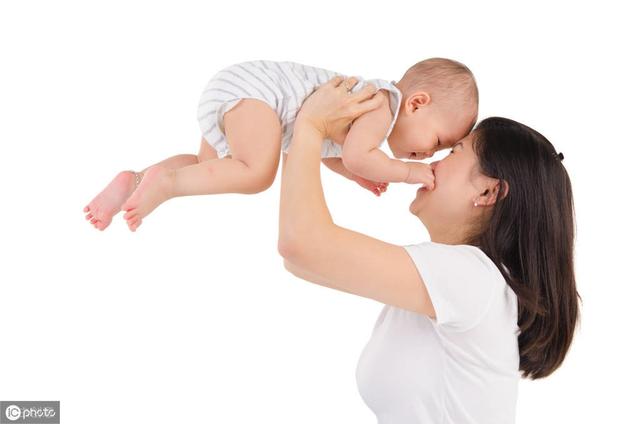一说起搞学习,通常的论调是“我不能分心,什么活动都不要叫上我”。
游戏开黑别找我、逛街撸串别叫我、刷剧看电影也往后挪挪。

但最近入选美国科学院外籍院士的中国科学家在微博上就曾表态:work hard and play hard。她的微博画风轻松幽默,跟印象中的科学家大相径庭。

Javad Alizadeh博士的观点也类似,他认为学习应当给玩乐让点儿路。为此,他在《自然》杂志网站上撰文讲述了自己的亲身经历。
Like many other students beginning graduate school, I was quickly overwhelmed with responsibilities and had to find time for studying by letting go of many other things I valued.
我和很多其他刚开始读研究生的同学一样,一上来就被研究生活的重担压垮了,为了腾出时间学习,我只能放弃很多其他的爱好。
Letting go of football and the violin was, however, self-defeating: it might have bought me more time in the short term, but spending that extra time on work only made me more stressed and less productive.
舍弃踢足球和拉小提琴这两项活动最终适得其反。短期内我可能的确是腾出了更多时间,但把那些时间花在工作上最终让我压力越来越大,效率越来越低。
Towards the end of my MSc program, I started to lose my motivation and curiosity for science and research, as well as my creativity. Spending so much time and energy in the laboratory, and focusing all my attention on my thesis and courses, made me feel down, lethargic and almost totally uninterested in my field — not to mention short-tempered and oversensitive in my personal interactions.
硕士阶段接近尾声,我对科研的兴趣减退,动力也越发不足,创造力也逐渐下降。花那么多时间和精力做实验、写论文、上课,让我整个人都很沮丧,懒懒散散的,对自己的研究领域几乎完全失去了兴趣——人还变得易怒,跟人交往时动不动就发脾气。
Over time, I learnt from these experiences. When I started my PhD, I focused on balancing academic success with personal time off, and made personal happiness a priority in my weekly schedule. My mentor and I discussed my work–life balance early in my program, and we arranged our lab responsibilities accordingly.
后来我从过往经历中汲取了教训。开始读博的时候,我就注意平衡学术研究跟个人休息之间的关系,我把个人的愉悦感摆在周计划中很重要的位置。刚一开学,我就跟导师讨论了工作和生活的平衡,我俩还依此商定了实验室工作职责。
I set boundaries for myself in new ways: rather than doing lab work all weekend, I’d play football or the violin, or visit loved ones, before ‘allowing’ myself to work for a few hours. This was hard at first: I worried that it would affect my standing with my peers and superiors. But I had learnt from experience that an overloaded schedule can drain you so much that you become unfocused and start making mistakes or forgetting important details.
我还在生活中划定了新的界限:不能整个周末都待在实验室,要踢足球,要拉小提琴,或者去看望家人和恋人,之后可以“允许”自己工作几小时。刚开始这么做的时候感觉挺难的:我担心会影响我在领导和同事心中的形象。但我的经验告诉我,工作计划太满只会榨干你,然后你的注意力就很难集中,犯错和忘记重要细节就在所难免。
Since establishing a better work–life balance, I’ve been doing well in graduate school. Outside the lab, I’ve been able to take up a few leadership positions at my university because I’m not as stressed with my work. I serve as our department’s student councilor and am also vice-president academic in the Health Sciences Graduate Students’ Association. My advice is this: a healthy work-life balance isn’t a luxury; it’s a key element of success in graduate programs.
达到工作生活的平衡之后,我做科研也得心应手了。因为工作没那么压力山大了,在实验室工作之外,我还能承担大学里的几个领导职务。我担任了我们系的学生委员,还当了健康科学研究院学生会的学术副主席。我的建议就是:健康的工作生活平衡并非遥不可及;而且它还是取得科研成果的重要因素。

《社交网络》剧照
Work-life balance,工作与生活之间的平衡,是很多现代人手头的难题。
和Javad博士最初的想法类似,人们往往担心过多的休闲生活会危及工作的成果和效率。
不过科技专栏作家Kendall Powell撰文指出:
Taking time off from work is crucial for avoiding stress and depression, and their potential consequences.
工作之余放松自己对于舒缓压力、避免抑郁和潜在危害来说至关重要。
Graduate students and postdocs, who may equate 'working longer' with 'working better', are particularly prone to working themselves into the ground, says Simon Davy, head of the School of Biological Sciences at the Victoria University of Wellington in New Zealand. Davy, who since his days as a PhD student has vowed not to work on Saturdays, says that he sees students slide easily into working seven-day weeks.
新西兰惠灵顿维多利亚大学生物科学学院院长Simon Davy称,研究生和博士后们可能会认为“工作时间越长”意味着“工作成果越棒”,但他们都格外容易把自己累垮。Davy读博士的时候就发誓周六绝不工作,他表示自己看到很多学生都难免一周工作7天。
听起来学术界貌似不是996,甚至是自愿的997。
工作与生活平衡的重要性不言而喻,但少有人知道如何定义work-life balance。
Despite the worldwide quest for Work-Life Balance, very few have found an acceptable definition of the concept.
全世界都在追求工作与生活的平衡点,但少有人能对此给出一个让人接受的定义。

《生活大爆炸》剧照
To define this concept, we should first define what work-life balance is not.
要对这个概念下定义,我们首先得厘清它不是什么。
❶ Work-Life Balance does not mean an equal balance. Trying to schedule an equal number of hours for each of your various work and personal activities is usually unrewarding and unrealistic. Life is and should be more fluid than that.
工作生活的平衡不是绝对的平衡。有人试图让不同的工作和个人活动占用的时长一样,这么做不仅效果不佳,而且根本不切实际。你的生活本就很有流动性,很容易变化。
❷ Your best individual work-life balance will vary over time, often on a daily basis. The right balance for you today will probably be different for you tomorrow. The right balance for you when you are single will be different when you marry, or if you have children; when you start a new career versus when you are nearing retirement.
你工作生活的最佳平衡点会随时间变化,很可能每天都在变。今天的平衡和明天的平衡可能不一样。单身的时候和结婚之后,或者有了孩子之后,包括刚开始踏入职场和退休之前,平衡点都不一样。
❸ There is no perfect, one-size fits all, balance you should be striving for. The best work-life balance is different for each of us because we all have different priorities and different lives.
你并不需要追求一个完美且万能的平衡。因为每个人的任务优先级都不一样,也都有自己的生活要过,所以我们的工作生活平衡点也不会相同。

《一天》剧照
However, at the core of an effective work-life balance definition are two key everyday concepts that are relevant to each of us. They are daily Achievement and Enjoyment.
不过,一个有效定义的核心包含两个日常概念,它们跟我们每个人都息息相关。这两个概念是成就感和愉悦感。
Work-life balance并不是说工作就只能追逐成就感,生活就只看重愉悦感。工作可以二者兼得,生活也是。
写完一篇长论文,盖上电脑,成就感油然而生;如果导师对你的作品大加赞赏,你的愉悦感也随之而来。
再比如,有朋友暗恋别人,叫你给她出主意,最终你的好点子帮助她收获了爱情,这很难不算是成就感。
overwhelm /oʊvərˈwelm/ v压垮;使应接不暇
self-defeating adj事与愿违的;适得其反的;弄巧成拙的
prone /proʊn/ adj易于遭受;有做……的倾向
fluid /ˈfluːɪd/ adj流动的;易变的
编辑:唐晓敏
Source: Nature; worklifebalance
BGM: Listless - Xeuphoria
来源:中国日报双语新闻微信
,




